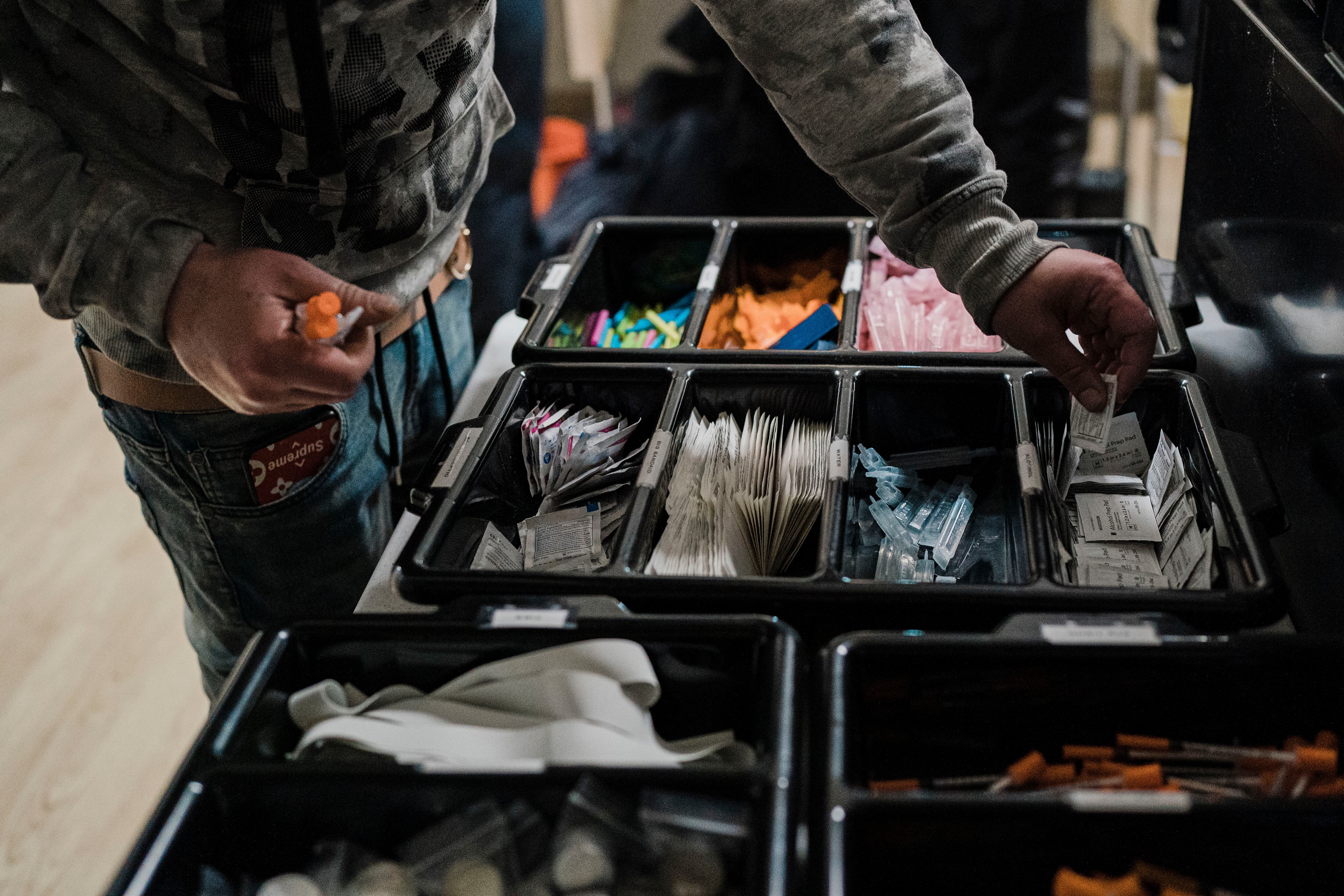Public health, explained: Sign up to receive Healthbeat’s free New York City newsletter here.
The New York State Opioid Settlement Fund Advisory Board urged deeper investments in harm reduction initiatives and reiterated its call for Gov. Kathy Hochul to declare the opioid crisis a public health emergency in its 2024 report.
But the report, publicly released on Tuesday, also laid bare the board’s growing frustration with the state agencies that work on the opioid crisis.
The report — the third of the advisory board, which first convened in 2022 — included an unusual “letter of concern” in which the board criticized state agencies for their “inability to provide comprehensive timely information for the board to make full data-driven recommendations.” The board also appealed to Hochul and the state legislature for support in its efforts to be transparent and collaborative.
“We are making recommendations based on air,” board member Tracie Gardner said during the panel’s last meeting on Oct. 28, at which many members’ concerns boiled over.
Gardner added that she did not feel prepared to vote on the report, given lack of sufficient data from the state on current overdose trends and the impact of previously dispersed funds.
The advisory board is tasked with making recommendations for the millions of dollars that New York received through legal settlements with the pharmaceutical companies that drove the opioid crisis. The Office of Addiction Services and Supports, which disperses the funds, has made hundreds of millions of dollars available so far. The board anticipates $65 million in opioid settlement fund appropriations in the 2026 fiscal year, including more than $45 million earmarked for the state and about $19 million for local efforts, according to the report.
The board’s 2024 report repeated many recommendations from previous years, including prioritizing funds for harm reduction initiatives like syringe service programs and overdose prevention centers. The board also renewed its call for a public health emergency declaration for the opioid crisis, which Hochul has resisted.
But in this year’s report, the board placed a greater emphasis on supporting grassroots organizations and investing in a system of care that helps those facing multiple challenges, including substance use and mental health disorders.
The board also emphasized the uneven landscape of the crisis and the need for racial equity in the disbursement of funds, describing the increasing rate of fatal overdoses among Black and Latino communities as an “overarching concern.” While local and national data indicate that the crisis stabilized somewhat in 2023, in New York City, overdose death rates remain disproportionately high among Black and Latino communities.
At the Oct. 28 meeting, many board members complained that they did not have sufficient data from state agencies, including OASAS and the state Department of Health, on which to base their recommendations.
Some members raised the prospect of delaying the board’s report, which is due annually on Nov. 1. This year’s report, due on Friday, was not made publicly available until Tuesday afternoon.
Dr. Justine Waldman, a board member, accused the state of “gaslighting” the board and deliberately withholding information and data, particularly surrounding harm reduction approaches to the crisis.
“We asked for data from the Department of Health about syringe service programs, we never received that,” Waldman said. “We asked about Hepatitis C. All these things that we’ve asked for, we haven’t received. And I’m very clear that all of this has been absolutely deliberate.”
During the meeting, OASAS Commissioner Dr. Chinazo Cunningham responded to members’ frustrations. She said OASAS had presented multiple times to the advisory board and that she was proud of her agency’s work to “integrate the recommendations into how the money has been distributed.”
“This Nov. 1 deadline is something that has been clear from the very, very beginning,” she said. “And I think that we certainly, as a state agency, have been working very closely with the chair since the beginning.”
Board member Anne Constantino raised concerns that the board’s recommendations were siloed from the state’s broader opioid crisis strategy, but advised moving forward with an “imperfect process.”
“I want to get a report out, because there’s money there, and we’ve got to hold people accountable to make the best decisions within the framework we’re presenting,” she said. “We’re just advisory. We can’t dictate anything. At the end of it, they’ve got to do the right thing with the money, and we’ve got to hold them accountable to it.”
Eliza Fawcett is a reporter covering public health in New York City for Healthbeat. Contact Eliza at efawcett@healthbeat.org .







